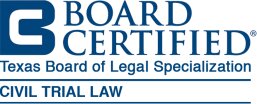Best Antitrust Litigation Lawyers in Houston
Share your needs with us, get contacted by law firms.
Free. Takes 2 min.
List of the best lawyers in Houston, United States
About Antitrust Litigation Law in Houston, United States
Antitrust litigation in Houston involves legal disputes related to federal and state laws that are designed to promote fair competition and prevent unlawful monopolies, price-fixing, bid-rigging, and other anti-competitive practices. Houston, as a major commercial hub with a strong energy, healthcare, and technology sector presence, often sees antitrust matters involving large corporations, suppliers, and service providers. Antitrust cases can be filed in state or federal courts, depending on the scope and impact of the alleged violation. The main purpose of these laws is to protect consumers, businesses, and the economy by ensuring a level playing field.
Why You May Need a Lawyer
Antitrust litigation can be highly complex, involving complicated factual scenarios and in-depth legal analysis. Common situations where individuals or businesses in Houston may require legal assistance include:
- Facing allegations of price-fixing, market allocation, or bid-rigging
- Accusing a competitor or supplier of anti-competitive behavior
- Defending a merger or acquisition being scrutinized for potential antitrust violations
- Responding to investigations or subpoenas from governmental authorities
- Negotiating settlements in class action lawsuits or multidistrict litigation
- Challenging exclusive contracts or tying arrangements that may restrain trade
- Ensuring compliance with antitrust regulations to avoid penalties
Given the stakes, retaining a knowledgeable antitrust attorney can help protect your rights and interests and improve your chances of a favorable outcome.
Local Laws Overview
Antitrust litigation in Houston primarily draws on federal laws such as the Sherman Act, the Clayton Act, and the Federal Trade Commission Act. Texas also has its own laws under Chapter 15 of the Texas Business & Commerce Code, known as the Texas Free Enterprise and Antitrust Act. Key aspects relevant to Houston include:
- The Sherman Act prohibits contracts, combinations, or conspiracies that restrain trade, as well as monopolization
- The Clayton Act addresses specific practices such as price discrimination, exclusive dealing, and certain mergers
- The Texas Free Enterprise and Antitrust Act mirrors many federal protections but can allow for additional remedies and broader standing for plaintiffs
- Both criminal and civil penalties can apply, including damages, injunctions, and sometimes treble damages
- Antitrust cases involving interstate commerce are typically handled in federal court, but purely local conduct may be pursued in Texas state courts
- Houston-area courts follow both federal antitrust precedent and Texas state law interpretations
Frequently Asked Questions
What is considered an antitrust violation in Houston?
Antitrust violations typically involve agreements or conduct that unreasonably restrain trade or lead to monopolization. Common examples are price-fixing, bid-rigging, market allocation, and certain anti-competitive mergers.
Who can bring an antitrust lawsuit in Houston?
Both individuals and businesses affected by anti-competitive conduct, as well as government agencies, can file antitrust lawsuits in Houston.
How are antitrust cases investigated in Houston?
Antitrust cases are investigated by federal agencies such as the Department of Justice and the Federal Trade Commission, as well as the Texas Attorney General’s Office. They often use subpoenas, interviews, and the review of documents.
What are the penalties for violating antitrust laws?
Penalties can include substantial fines, damages awards (often tripled in civil cases), injunctive relief, and for egregious violations, even criminal prosecution and imprisonment.
How long do antitrust cases take to resolve?
Antitrust litigation can be lengthy, sometimes lasting several years, especially in complex matters involving many parties or extensive discovery.
Can my business practices be reviewed for antitrust compliance?
Yes, attorneys can conduct antitrust compliance reviews to help ensure your business is not at risk of violating these laws.
What should I do if I receive an antitrust investigation notice?
You should immediately consult with an experienced antitrust attorney before responding or providing any documents or information.
Are there differences between state and federal antitrust laws in Texas?
While Texas law often mirrors federal statutes, there are some procedural and substantive differences. Texas law can provide broader remedies in some situations and may apply to commerce within the state.
What evidence is needed to prove an antitrust claim?
Evidence may include contracts, communications, pricing data, witness testimony, and economic analysis showing harm to competition.
Can small businesses use antitrust laws to protect themselves?
Yes, small businesses harmed by anti-competitive conduct can seek remedies under both state and federal antitrust laws, including recovery of damages and injunctive relief.
Additional Resources
If you are seeking more information or assistance in Houston, the following resources can be helpful:
- U.S. Department of Justice Antitrust Division
- Federal Trade Commission Bureau of Competition
- Office of the Texas Attorney General - Antitrust Division
- Houston Bar Association Antitrust and Trade Regulation Section
- University law libraries, such as the University of Houston Law Center
Next Steps
If you believe you are involved in or affected by an antitrust issue in Houston:
- Gather all relevant documents and communication related to your case
- Contact an attorney who specializes in antitrust litigation in the Houston area
- Schedule a consultation to discuss your situation, your options, and next steps
- Follow your attorney’s advice and remain cautious about discussing details with others before receiving legal counsel
- Consider antitrust compliance training or regular reviews if you run a business to reduce future risk
Due to the complexity and high stakes of antitrust litigation, timely and informed legal assistance is crucial for protecting your rights and interests.
Lawzana helps you find the best lawyers and law firms in Houston through a curated and pre-screened list of qualified legal professionals. Our platform offers rankings and detailed profiles of attorneys and law firms, allowing you to compare based on practice areas, including Antitrust Litigation, experience, and client feedback.
Each profile includes a description of the firm's areas of practice, client reviews, team members and partners, year of establishment, spoken languages, office locations, contact information, social media presence, and any published articles or resources. Most firms on our platform speak English and are experienced in both local and international legal matters.
Get a quote from top-rated law firms in Houston, United States — quickly, securely, and without unnecessary hassle.
Disclaimer:
The information provided on this page is for general informational purposes only and does not constitute legal advice. While we strive to ensure the accuracy and relevance of the content, legal information may change over time, and interpretations of the law can vary. You should always consult with a qualified legal professional for advice specific to your situation.
We disclaim all liability for actions taken or not taken based on the content of this page. If you believe any information is incorrect or outdated, please contact us, and we will review and update it where appropriate.

















